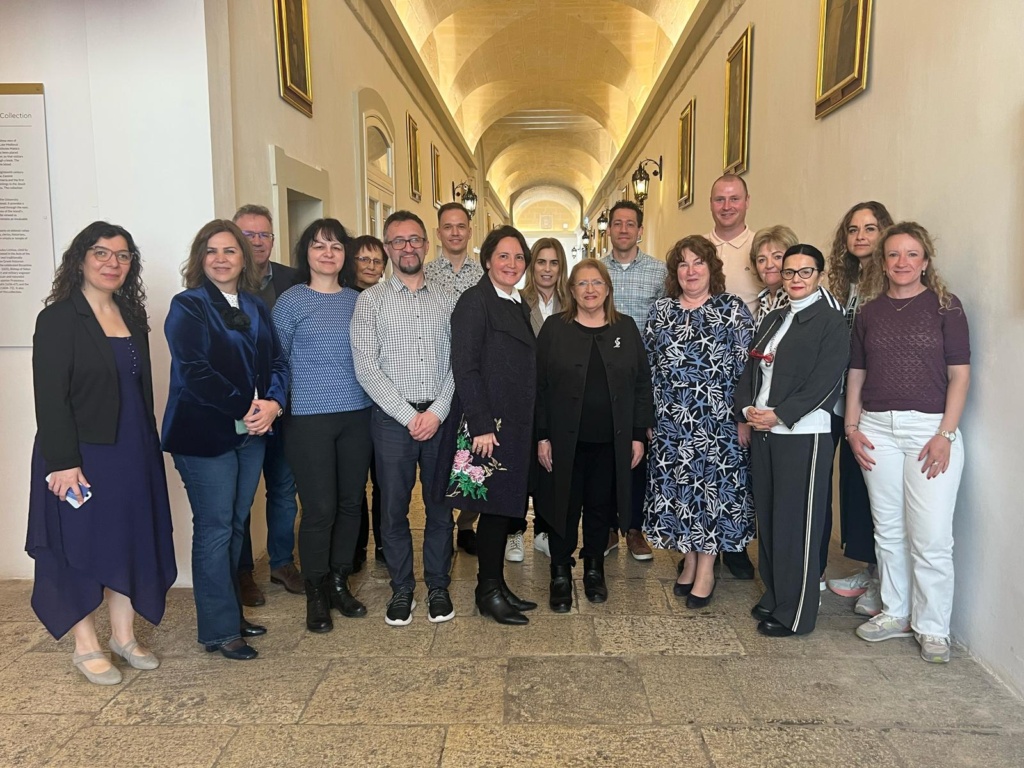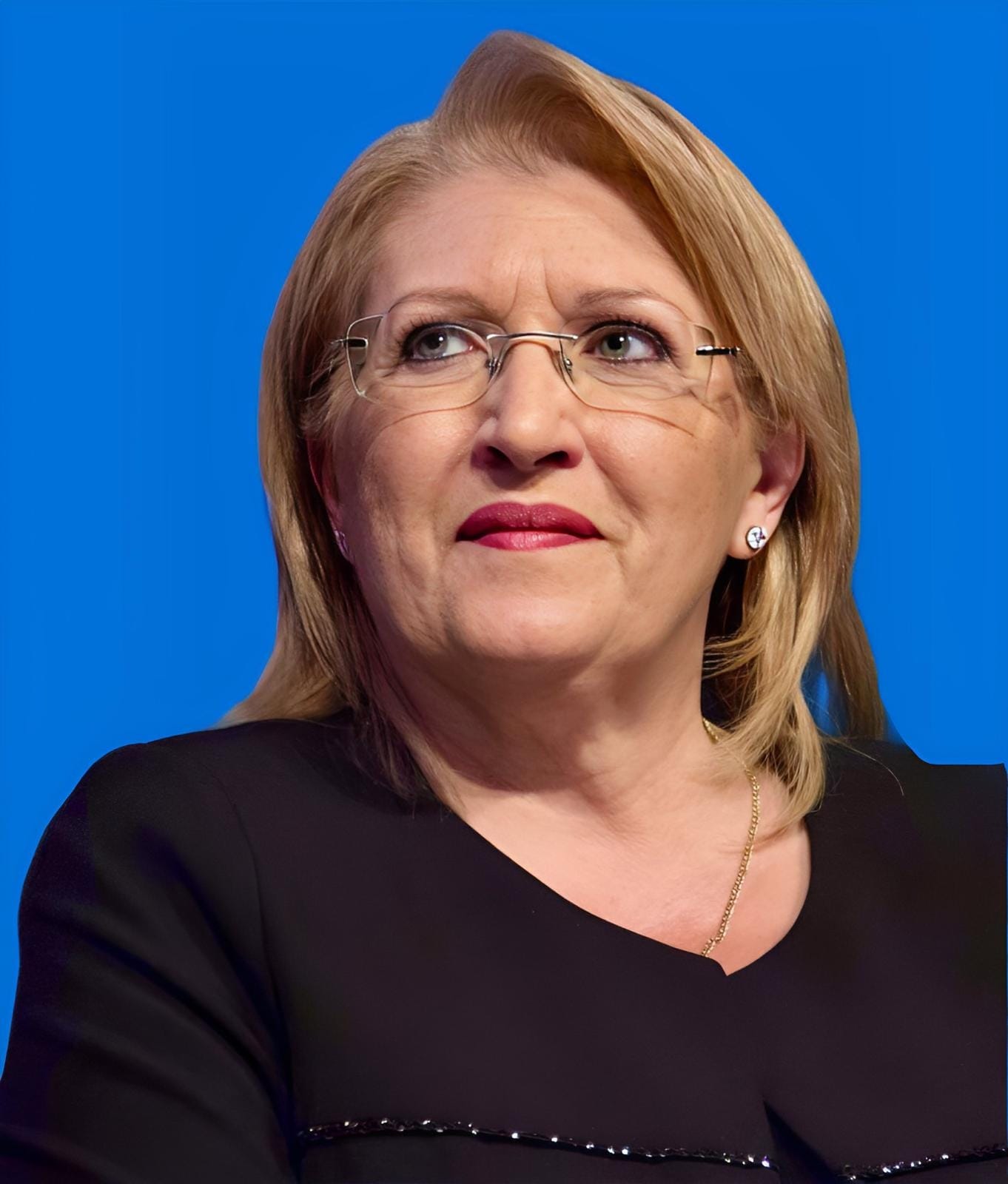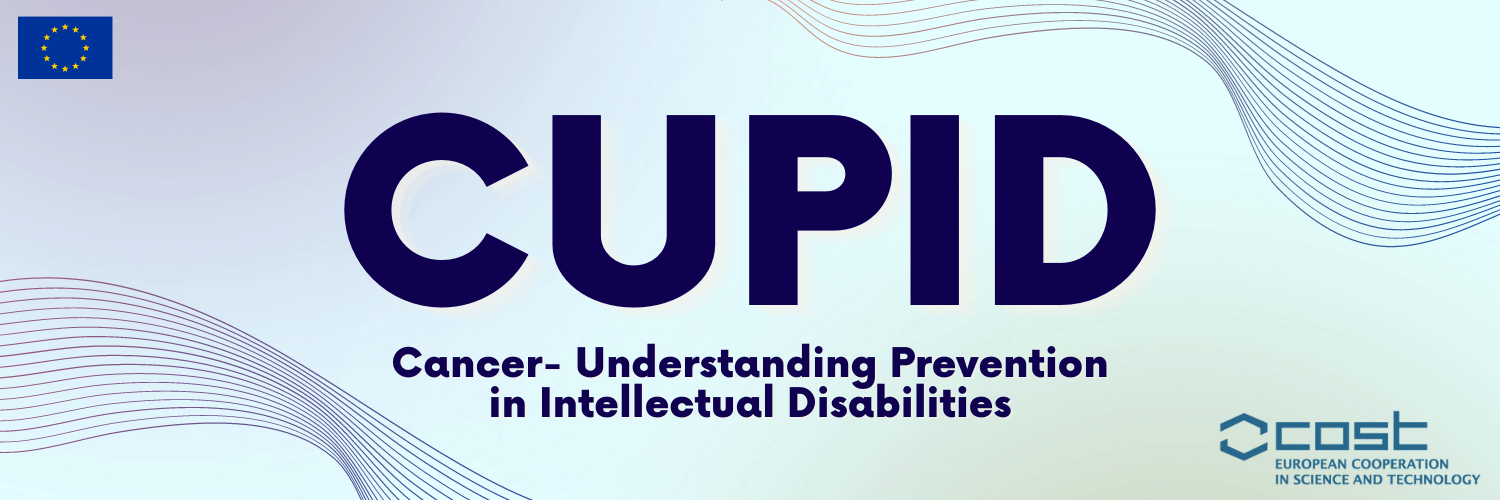The members of the MC and WG4 of the CUPID project will hold their meetings in Valetta Malta this week on 27 & 28 March.
The meetings will be hosted by the University of Malta, with Her Excellency the President Emeritus, Dr Marie Louise Coleiro Preca addressing the group on the first day.
Both meetings will give the members the opportunity to meet, network, discuss the progress of the project and the future activities planned for Year 3 of this Action.

Speech Introduction for Her Excellency Dr Marie-Louise Coleiro Preca by Prof Dr Jean Calleja Agius
Her Excellency, Marie-Louise Coleiro Preca, Former President of the Republic of Malta be-ween 2014 and 2019. At the age of 55 years, Dr Coleiro Preca was the youngest President of the country, and the second woman occupying the office of Head of State. Soon after taking office, Her Excellency established a number of entities to nurture dialogue and to foster unity and a culture of positive peace among people. One of her initiatives is The Malta Foundation for the Wellbeing of Society. The Foundation was founded in 2014 and was a first of its kind in Malta. The Foundation operates through a consultation process and conducts scientific research, through a number of established entities, involving: Children, Family, Community, and Persons with Disability. Dr Coleiro Preca founded the Malta Trust Foundation in 2015. The aim of this Foundation is to encourage vulnerable young people, experiencing difficulties in life, to improve their lives through education and training. Another foundation set up by Her Excellency is the Emanuele Cancer Research Foundation Malta. This Foundation was set up with the purpose of reducing the impact and burden of cancer on the people of Malta, the Mediterranean Region and globally through supporting and promoting world class cancer research and development and education. Without further ado, I will leave the floor to Her Excellency Dr Marie-Louise Coleiro Preca. Thank you for accepting our invitation.
Keynote Address and Photo Session – Her Excellency Dr Marie Louise Coleiro Preca, President Emeritus of Malta, delivered a keynote highlighting the importance of inclusive cancer prevention and accessible health communication for persons with IDD.
CUPID COST ACTION
Conference 24th March 2025 Valletta Campus
Breaking Barriers: Advancing Cancer Prevention for Persons with Intellectual Disabilities
Keynote Speech
Marie Louise Coleiro Preca

Good morning, Everyone
It is an honour to share some brief moments with you today at this important gathering of academics dedicated to addressing a challenge that has long been overlooked in our healthcare systems: cancer prevention for persons with intellectual disabilities.
Let me begin with a humble acknowledgment.
I am not a medic, nor am I a healthcare provider or care giver.
However, throughout my life and career, I have had the privilege of championing both disability rights, cancer awareness, and research.
In the various roles I have held, I have seen firsthand how the intersection of these two critical areas, often results in profound disparities.
I have met families who struggle to access even the most basic preventive screenings, caregivers who lack the guidance they need, and individuals whose voices remain unheard in medical spaces.
But this issue is not just professional for me.
It is deeply personal.
In fact, I have had a recent firsthand experience of a real-life story that continues to weigh on my heart.
There was a person I knew a vulnerable individual with an intellectual disability who was also deaf and non-speaking.
For quite some time, he had been suffering from persistent pain, which worsened as the months went by.
His caregivers did everything they could. They took him to his physician, they sought advice from specialists, they followed medical recommendations. But because he was unable to express his pain in conventional ways, his suffering remained a mystery to those around him. His condition continued to deteriorate, yet no one suspected a life-threatening illness.
It was only in the final stages, when he began losing weight at an alarming rate, that the specialists decided to conduct further tests. And that was when the devastating truth came to light: he had advanced-stage cancer.
By then, it was too late. Treatment was no longer an option, and his caregivers could do nothing but watch as he faded away.
Heartbreakingly, he passed away very soon after.
His story is not unique.
It is the reality of many individuals with intellectual disabilities around the world individuals who endure pain in silence, who miss out on early detection, who are diagnosed when it is too late.
The World Health Organization reminds us that the highest attainable standard of health is a fundamental right of every human being (WHO, 2022).
And yet, for persons with intellectual disabilities, this right is often compromised, not due to medical limitations, but due to systemic barriers that prevent access to life-saving screenings, and early detection.
Cancer does not discriminate, but access to prevention and treatment does.
Today, we are here to create awareness and amplify the voices of these vulnerable individuals with the hope of changing the status quo.
Lets take a moment to understand the challenges and to confront the disparities we are here to address.
A 2021 study in The Lancet Public Health found that individuals with intellectual disabilities are 30% less likely to participate in cancer screening programmes when compared to the general population (Oswald et al., 2021).
The reasons are many.
Let me mention a few:
Healthcare systems that are not designed to accommodate their unique needs.
Communication barriers that hinder informed decision-making.
Assumptions by medical professionals that certain procedures are “too difficult” or “un-necessary” for this population.
The consequences of these disparities are devastating.
According to research published in Cancer Epidemiology (2019), individuals with intellectual disabilities are often diagnosed at later stages of cancer, leading to poorer outcomes and reduced survival rates (Tuffrey-Wijne et al., 2019).
Many symptoms go unnoticed or are misattributed to pre-existing conditions, delaying crucial interventions.
As Dr Margaret Chan, former Director-General of the WHO, once said:
Good health is not something we can buy. However, it can be an extremely valuable savings account.
Sadly, many individuals with intellectual disabilities have not been given the opportunity to invest in this savings account, because the resources, the information, and the screenings they need, have been out of reach.
This is not just a healthcare issue. It is a human rights issue.
So, how do we change this?
How do we ensure that cancer prevention is inclusive of every individual, regardless of ability?
We need to break down barriers!
1. We must raise awareness:
A study in Health Promotion International (2020) found that providing accessible educational materialssuch as easy-read booklets and pictorial guidescan increase screening participation by 20% (Taggart et al., 2020).
We must ensure that individuals with intellectual disabilities, their families, and caregivers receive clear, accessible information about the importance of cancer screening and early detection.
2. We must train Healthcare Providers:
A 2022 survey of 500 primary care physicians published in the Journal of Intellectual Disability Research found that 67% of doctors felt unprepared to discuss cancer screening with patients with intellectual disabilities (Willis et al., 2022).
This statistic is alarming.
Medical education must include disability-inclusive training, so that every provider is equipped to deliver compassionate and effective preventive care.
3. We must advocate for Policy Change:
The UKs National Health Service (NHS) introduced a policy mandating reasonable adjustments for patients with intellectual disabilities in 2018. Within three years, this led to a 12% increase in preventive screenings (NHS Digital, 2021).
This proves that policy changes, can and do, make a difference. We must push for similar policies in our own healthcare systems.
4. We must empower Caregivers and support Networks:
A 2021 study in Disability and Health Journal found that when caregivers receive proper training on cancer prevention, screening participation among individuals with intellectual disabilities significantly increases (Baines et al., 2021).
Caregivers are a vital link in this effort, and they need the knowledge, and the support to advocate for the health of those they care for.
As disability rights advocate Judy Heumann once said:
Disability only becomes a tragedy when society fails to provide the things we need to lead our lives.
The failure to provide inclusive cancer prevention is not a tragedy of disability, it is a failure of society.
I believe that this conference is not just about identifying challenges, but it is also about building solutions.
I am confident that over the next couple of days, you will collaborate, share knowledge, and develop concrete strategies to ensure that cancer prevention is truly inclusive.
Dr Martin Luther King Jr. once said:
Of all the forms of inequality, injustice in health care, is the most shocking and inhumane.
I am convinced that we are all here today, because we refuse to allow this injustice to continue!
I want to leave you with sharing my vision.
Imagine a world where no individual is denied cancer screenings because of a disability.
A world where healthcare providers see every patient not as a challenge, but as a person deserving of the best care.
A world where cancer prevention is not a privilege, but a right for all.
That world is within our reach.
And it starts here, with us.
I am sure, we all share the same vision.
I look forward to knowing about the outcomes of your deliberations.
Keep up your good work!
